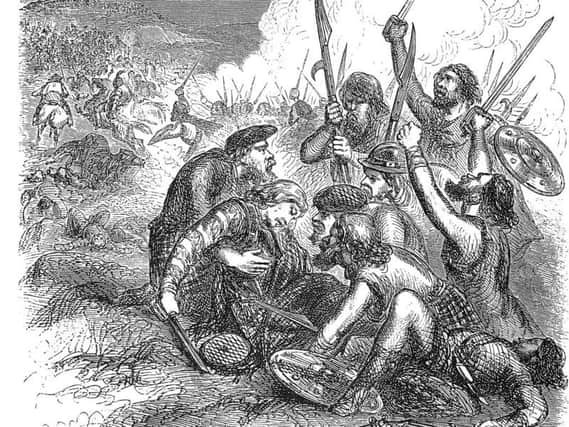Jacobite society warns of 'irreparable damage' to historic battlefield amid A9 upgrade plan


The 1745 Association said plans by Transport Scotland to widen the existing route over the battlefield risked “irreparable and irreversible damage” to the important historic site.
Michael Nevin, chairman of the 1745 Association said: “We are respectfully asking the Reporter to consider all feasible options for the A9, not just those put forward by Transport for Scotland, in order to avoid irreparable and irreversible damage to one of Scotland’s most important battlefield sites.”
Advertisement
Hide AdAdvertisement
Hide AdMr Nevin said the best strategy for the A9 would involve maintaining the existing single carriageway at the Pass of Killiecrankie, combined with selective dualling on stretches before and after, allowing motorists to overtake slower moving vehicles safely.
The 1745 Association formally wrote to the Director of Major Transport Infrastructure Projects of Transport Scotland in January 2018 setting out its objections.
Mr Nevin said “cosmetic changes” since drawn up by Transport Scotland did not go far enough to allay the association’s concerns.
“We stand shoulder to shoulder with the Scottish Battlefields Trust, the local community group Soldiers of Killiecrankie, our friends in The Fifteen (the Northumbrian Jacobite Society) and many others who share our fundamental concerns about these proposals,” he said.
Much of the campaign against the expansion of the road over the battlefield, where a Jacobite force of roughly half the size of the British Army contingent claimed victory in the major encounter of the first rising, has been fought by the Killiecrankie1689 organisation.
A statement on the group’s website said it was in favour of the A9 upgrade, but claimed there was not enough proof the plan for the battlefield was the best one available.
The statement said: “Scotland once aspired to be seen as an international exemplar of how a small country can care for its historic environment. This scheme betrays that aspiration. No-one relishes the prospect of an inquiry.
However, it is the only way we have to examine the opaque process and decisions that informed the choice of design and alignment of the proposed scheme.”
Advertisement
Hide AdAdvertisement
Hide AdThe public local inquiry in Pitlochry is expected to last two weeks.
A Transport Scotland spokesperson said: “We are aware of the sensitivities around what is an important battlefield and site of historical and cultural significance, which is why we have been engaging extensively with the local community and key stakeholders since 2012.”
He said amendments had been made to their proposals to reduce the amount of battlefield land being given over to the new road.
